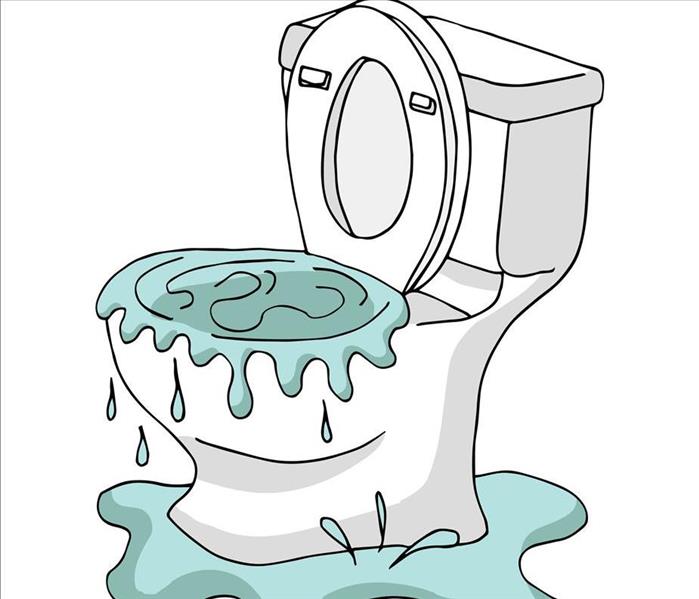4 Steps To Take When the Toilet Floods
7/29/2021 (Permalink)
When sewer damage affects your Washington, NC, commercial property, the situation can be classified as an emergency. The potential for exposure to bacteria, viruses, and other contaminants in the water is high. SERVPRO cleanup and restoration professionals have the training, personal protective gear, and cleaning equipment to handle the issue safely.
Take Quick Action
The flooded toilet is one of the most common causes of sewer damage. You may have experienced the dread that comes from watching the water rise too much after a flush. Fortunately, there are some steps you can take right away to prevent further trouble:
1. Shut Off the Water
Look for a shut-off knob or valve right behind the toilet and turn it counterclockwise. If the water continues to rise, take off the lid to the tank and pull the float.
2. Dry Up Overflowing Water
If the water doesn't contain sewage, use old towels to clean up the overflow. Even when dealing with clean water, it's best to protect yourself with rubber gloves and boots with good traction, so you don't slip. If the water isn't clean, it's best to contact a sewage company or other trained professionals.
3. Gather Your Equipment
A plunger may do the trick. Make sure you get a tight seal at the drain inside the toilet bowl. The goal is to force air or water into the drain, applying enough pressure to move clogged items out of the way. After the water moves down the drain, flush once more to be sure you don't need to repeat this step.
4. Sanitize Appropriately
In many cases, it's okay to sanitize the overflow. Be careful when using bleach-based products; these could cause damage to porous surfaces. However, in a commercial property or if there's evidence of sewer damage, your best option is to hire a professional.
If there's any question that sewage may be involved, contact water damage restoration professionals, such as SERVPRO professionals who are Faster to Any Size Disaster.






 24/7 Emergency Service
24/7 Emergency Service
